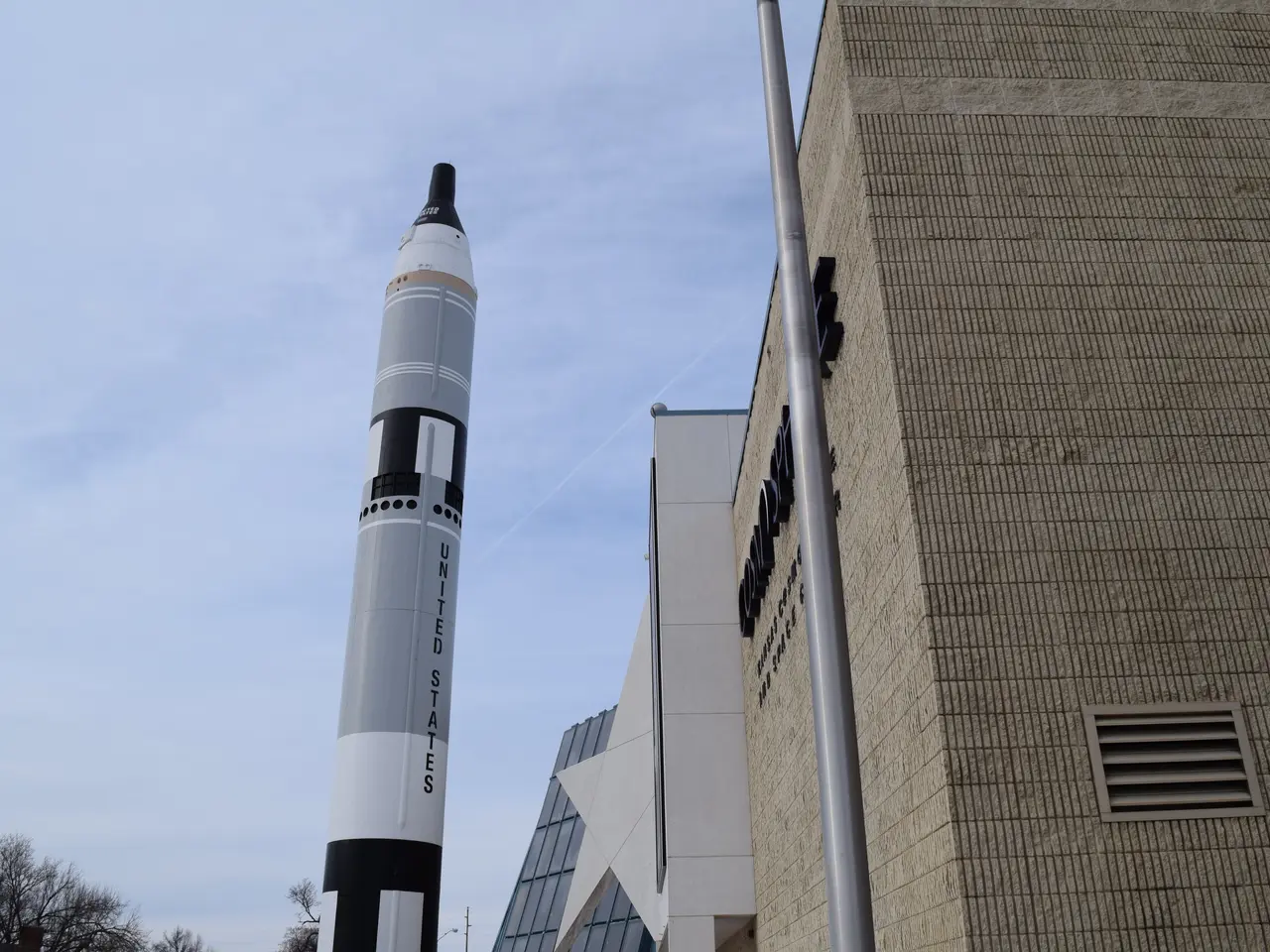SpaceX Recognized as One of TIME's Most Impactful Corporations in 2025
In the ever-evolving world of space exploration, SpaceX continues to make significant strides with its Starship program, despite encountering setbacks and navigating a tight timeline for NASA's Artemis lunar mission.
Recent test flight setbacks have been a challenge for SpaceX. The latest incident occurred in mid-June, when a Starship prototype exploded during preparations for its 10th test flight in Texas. The explosion followed a series of upper stage failures in the first nine test flights this year, with Starship vehicles breaking apart within minutes or, in one case, losing contact after about 46 minutes and likely crashing into the Indian Ocean. However, the Super Heavy booster has shown better performance, with successful landings and reusability demonstrations on several flights.
Despite these setbacks, SpaceX is pushing forward with the development of Starship launch infrastructure in Florida. The company aims to launch from Cape Canaveral's LC-39A pad by late 2025, marking a pivotal step toward supporting NASA's Artemis III lunar mission, planned for mid-2027. The success of the Florida launch and subsequent orbital tests are crucial steps toward SpaceX's objective of conducting uncrewed Starship Human Landing System (HLS) demonstration missions and establishing in-orbit refueling before Artemis III's crewed lunar landing attempt in 2027.
SpaceX is adapting to overcome testing challenges, such as possibly using the ship transport stand as an adapter to perform static fire tests on Ship 37, despite compatibility concerns. Repairs to the test site may take weeks, potentially delaying Flight 10 to late July or later, pushing into August or September 2025.
SpaceX's impact on space exploration, global connectivity, and politics remains undeniable. The company has launched nine test flights since 2023, with the latest explosion being an unfortunate exception. Despite political friction, SpaceX continues to redefine what's possible in aerospace, as demonstrated by the successful launch of the Ax-4 mission to the International Space Station.
Elon Musk, SpaceX's founder, wields unmatched influence in both the public and private sectors. This influence is reinforced by TIME's recognition of SpaceX as one of the 100 Most Influential Companies of 2025, placing the company in the "Pioneers" category.
The Falcon 9 rocket, developed by SpaceX, has completed 489 launches since 2010, making it the most reliable and frequently used orbital launcher in the world. The Falcon 9's success has contributed to SpaceX's unmatched launch cadence and ambitious hardware development, which are key factors in the company's ability to deliver faster and more accessible broadband to rural and underserved regions through its Starlink internet service.
In summary, while SpaceX faces technical hurdles with Starship's upper stage and ground test facilities, the company is making critical progress on launch infrastructure and plans to achieve orbital capability from Florida late in 2025. This progress is instrumental for supporting NASA's Artemis lunar exploration ambitions with Starship as the Human Landing System. The timeline remains tight, and upcoming months will be revealing for the program's readiness to meet Artemis milestones.
In the face of a series of test flight setbacks and potential delays, SpaceX is diligently working on the development of Starship launch infrastructure, exploring creative solutions such as adapting the ship transport stand as an adapter for static fire tests. Meanwhile, the success of SpaceX's Space-and-Astronomy endeavors, including the groundbreaking technology employed in the Starship and Falcon 9, continues to revolutionize the field of science and redefine possibilities in aerospace, both for space exploration and global connectivity.




